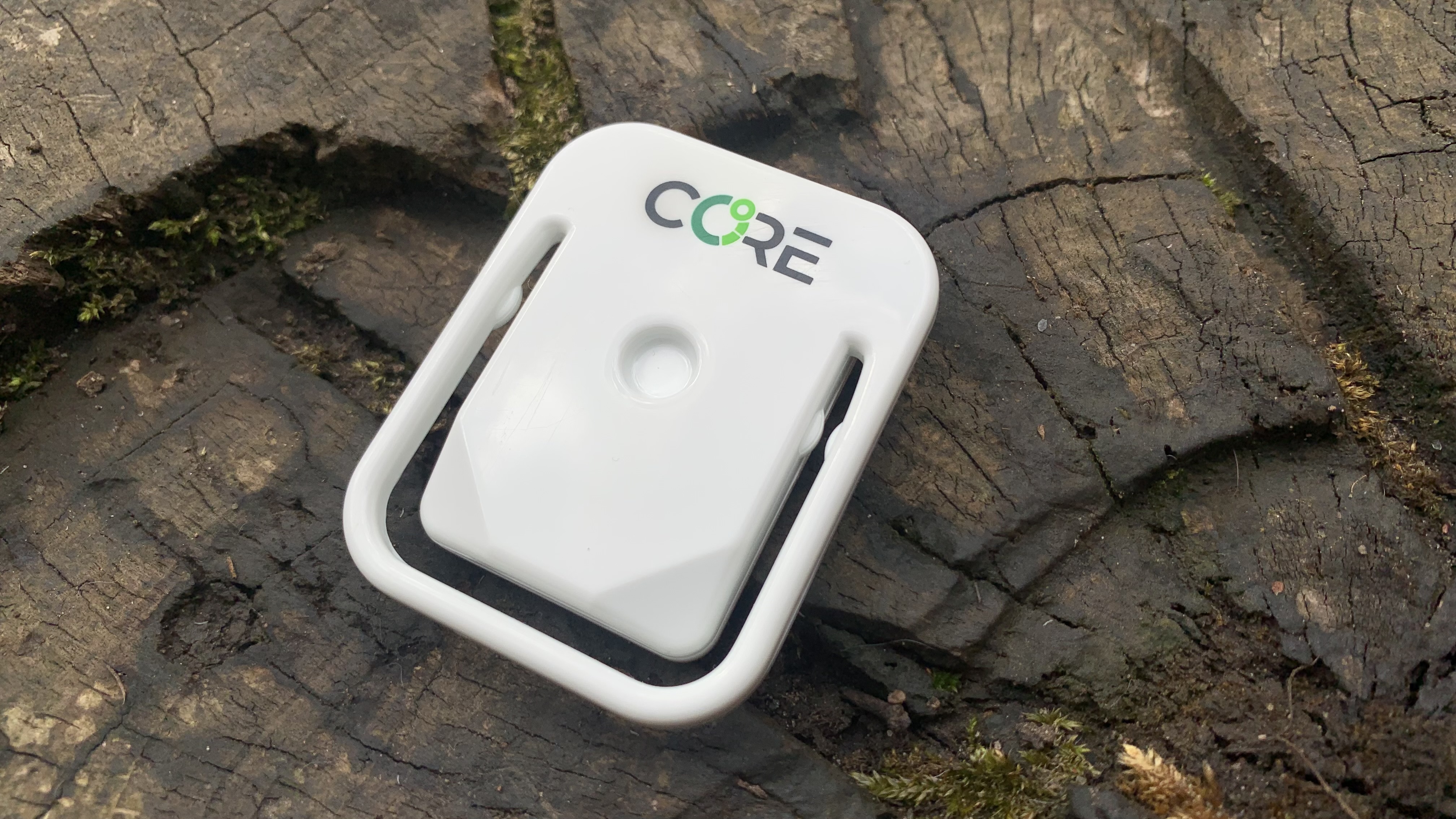What is a depletion run – and can it help your training?
An expert guide to the pros and cons of training after fasting

Have you heard of depletion running? Maybe not, but perhaps you have heard runners talking about running without eating breakfast, a fasted morning run or even “running on empty”. A depletion run refers to the concept of running in a semi-starved and carb-depleted state and usually takes place first thing in the morning, after sleeping and before eating breakfast.
Tell me more: what is a depletion run?
The term depletion running actually has a history dating back decades. Sports Scientist Arj Thiruchelvam says: “In endurance sport, depletion runs are a colloquial term for what has been referred to by exercise physiologists and sports nutritionists as 'fat adaptation'.
“Fat Adaptation was an exciting and promising concept that was frequently researched in the late 1990s and early 2000s, with the hope of being able to improve performance over endurance and ultra endurance distances by using fat as a source of energy, rather than our limited carbohydrate/glycogen stores.”
To explain the basics of the theory on depletion running, personal trainer Abbie Watkins says: “A depletion run usually refers to when a runner intentionally restricts their carbohydrate intake before and during a run, often by running first thing in the morning before breakfast.
“The purpose of this is to force the body to use fat as an energy source rather than glycogen, since glycogen levels will be low having not consumed carbohydrates.”
Instead of the body fuelling itself with carbs, it then turns to fats as an energy source. Abbie, who works with OriGym, says: “To explain, the body's energy comes mainly from carbohydrates and then turns to fats afterwards."

Delving deeper: the science behind depletion runs
Arj, who is head coach at Performance Physique and supports novices up to Team GB Olympians with fitness and nutrition, delves a bit deeper into the scientific theory to explain depletion running.
Advnture Newsletter
All the latest inspiration, tips and guides to help you plan your next Advnture!
He says: “In order to power our exercise and all movement in everyday life we rely on macronutrients, carbohydrate, fat and then protein, in order of preference based on the rate of delivery and efficiency.
"We can metabolise, using carbohydrate – stored as glycogen – fastest, then fat, and our last resort is protein. We will focus on the first two because protein is used only in survival situations and means a loss of muscle mass, which is far from ideal.
“Although research has identified there are substantial individual differences where each person oxidises fat and carbohydrate at different intensities of exercise, in general, when exercise moves beyond 55% to 65% of maximum heart rate, the source of energy used by the body is glycogen from carbohydrate. This is to meet the demand of the exercise speed.”
If there is no glycogen left in the body, it has to use fat as a source of energy. However, as a study (Achten & Jeukendrup., 2004) revealed, this process takes longer to deliver to the muscles and needs oxygen to be present and, as a result, the speed and intensity of exercise has to reduce.
Arj adds: “If you think about it in endurance terms, the problem with using carbohydrates is the stores are limited to around three hours of exercise, while we have an abundance of fat stored as adipose tissue, even in the leanest athletes.”

The pros and cons of depletion runs
The main benefit of depletion running is claimed to be that they can improve endurance in long-distance events by teaching athletes to better handle glycogen depletion.
Arj reports that there are studies that evaluated both short and long-term diets of low carbohydrate and high fat in an attempt to improve the body’s performance during endurance exercise.
He says: ”The results demonstrated an increase in fat oxidation, which is obvious when you consider it is the most abundant fuel source. Athletes began to improve in the manner in which they used fat and became a more efficient athlete at using fat to energise their sport.
“However, it was far from ideal and athletes were unable to match the levels of intensity and overall performance to that of carbohydrate fuelled exercise.”
In three separate trials, research by Burke and Hawley (2002) showed that during short-term diets of one to three days, time to fatigue and time trial performance were hindered dramatically when using a high fat, low carbohydrate diet, with a reduction in performance of 17% to 44%.
In 28-day diet investigations, the results were mixed, with some athletes demonstrating performance improvements, while others showed performance reductions.
Arj said: “For this reason, question marks remained over the method in which they were tested. The key takeaway here was that one performance improvement in low/moderate intensity exercise improved around the fifth day of consuming a high fat, low carbohydrate diet.”
He added: ”There is therefore an argument that a practical training strategy could be to follow a five-day high fat, low-carbohydrate diet followed by a higher carbohydrate diet. This could improve performance as the glycogen stores are keen to absorb as much of the glucose as possible.”
However, there have been further studies on the subject. In a study by Hawley and Leckey (2015) it was shown that elite endurance athletes who tried this method found that not only was their performance impaired, but also their body’s ability to process carbohydrate as efficiently was hindered.
More studies as recently as a 2020 piece of research by Burke et al (2020) have shown negative impacts of carbohydrate depletion for fat adaptation for well-trained race-walkers.
Now we understand the science, we can better understand what a depletion run really is.
Arj says: “The theory is that after a minimum of six hours and up to a 12-hour fast, the body has very low carbohydrate stores for moderate and high intensity training runs, therefore it will use fat as a source of energy. The hope is that over a period of time this will improve the body’s ability to manage fat as a source of energy efficiently, and therefore lead to improved endurance performance.
“An alternative strategy requires a high intensity run then not eating carbohydrates to recover, before performing an afternoon easy run with low carbohydrate availability.
“But, it’s important that a depletion run is not performed regularly because it’s very taxing and poses some dangers. Therefore, you should always consult your doctor prior to starting."

In short: pros and cons of depletion running
Arj concludes that if there are benefits of of depletion running, they are:
- Improves the body's ability to burn fat for energy, but this is limited.
- May sometimes improve endurance performance.
However, there are also some potential risks associated with depletion runs:
- Can increase the risk of injury
- Can lead to fatigue and muscle soreness
- Can be difficult to recover from
- Can affect performance ability in the long-term.
He adds: “It appears our mitochondria, the power stations of our cells, are the limiting factor. Some elite Kenyan runners may have evolved their cell functioning to deal better with this fasted training as a case of genetic pre-disposition. Do bear in mind that, typically, Kenyan runners over the past few centuries have been recorded consuming around 70% of their diet from carbohydrate.”
Who are depletion runs for?
Despite the research, many athletes are still keen to follow the theory of depletion running, whether road runners or trail runners, especially for extended endurance events, where carbohydrate reserves will be depleted.
Abbie says: “This kind of training isn’t typically recommended for beginners or for anybody who isn't training for endurance. Even experienced runners and endurance athletes should seek advice from a knowledgeable professional to ensure depletion runs are safe and have the best potential to be effective."

Fiona Russell is a widely published adventure journalist and blogger, better known as Fiona Outdoors. She is based in Scotland and is an all-round outdoors enthusiast with favorite activities including trail running, mountain walking, mountain biking, road cycling, triathlon and skiing (both downhill and backcountry). Aside from her own adventures, Fiona's biggest aim is to inspire others to enjoy getting outside and exploring, especially through her writing. She is also rarely seen without a running skort! Find out more at Fiona Outdoors.
